- Administrator
- Albums and Singles
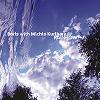 Much of Rainbow is the next logical step after Boris' fantastic Pink album, there is the same mixture of heaviness and melody but with a greater emphasis on the latter. With Ghost's Michio Kurihara on board there is a greater exploration of what a guitar and an amp is musically capable of as opposed to physically capable of. This is easily one of the best albums Boris have put their name to, there is not one boring moment at any point during the album.
Much of Rainbow is the next logical step after Boris' fantastic Pink album, there is the same mixture of heaviness and melody but with a greater emphasis on the latter. With Ghost's Michio Kurihara on board there is a greater exploration of what a guitar and an amp is musically capable of as opposed to physically capable of. This is easily one of the best albums Boris have put their name to, there is not one boring moment at any point during the album.
Drag City
Coming early on in the album, the title track features Wata on vocals and, while the Japanese language is lost on me, whatever she is singing about sounds lovely. Kurihara's solo is hot and piercing, totally at odds with the slinky rhythms of the song but working perfectly nonetheless. Kurihara complements the trio far better than I had hoped, without trying to doom up his playing but retaining his distinctive playing style throughout. His expressive and elaborate technique plays off Wata's equally impressive but radically different approach to the guitar.
Kurihara conjures up solo after solo, each one more magical than the last. Not letting him take all the limelight, Boris throw together some of the best songs of their career. The shortest piece on Rainbow, "My Rain," and the longest, "You Laughed like a Water Mark," sees Boris focus firmly on uplifting rhythms and gorgeous melodies: two things neither entity have a reputation for but pull off brilliantly. The collaboration bears its most succulent fruit towards the end of the album with "Sweet No.1." Here, on top of a blindingly simple riff, all four musicians let loose. The storm of guitars that has been brewing all album finally unleashes its powers. The fever of Kurihara's guitar playing towards the end of the song comes through so forcefully that it makes the hair on the back of my neck stand up.
There is no doubt that Rainbow is a gem of an album, definitely a highlight of both Boris and Kurihara's back catalogues. It is a far cry from the doom of Boris' past and more in line with Ghost's more ballsy moments—some sort of strange middle ground between the more etherial Ghost and fuzzed out bliss of Boris. Thankfully Rainbow was not made into a stupid limited edition like so much of Boris' recent releases, as it's screaming to be a strong contender for album of the year.
samples:
Read More
- Administrator
- Albums and Singles
 Always content to play by its own rules, M_nus takes a chance on a virtual unknown with this dizzying set of melodic yet dissonant beeps and beats. Although adherent to the prestigious imprint's ethos, the artist twists and deforms his unstable tracks in a manner that connotes a possible evolutionary direction for the label's sound, assuming listeners can even detect it.
Always content to play by its own rules, M_nus takes a chance on a virtual unknown with this dizzying set of melodic yet dissonant beeps and beats. Although adherent to the prestigious imprint's ethos, the artist twists and deforms his unstable tracks in a manner that connotes a possible evolutionary direction for the label's sound, assuming listeners can even detect it.
Minimal techno can be extremely difficult to fully enjoy on headphones or even a home stereo, as like most dance music subgenres it is by-and-large produced with the dancefloor in mind. Its very appeal depends on the impact the track's sparse ingredients have within the space of a venue far more spacious than my apartment. Of course, one has to consider that most minimal techno is made on laptops or home desktop computers, with only headphones and studio monitors serving to guide in each track's creation and development. In a sense, then, hearing this music at home facilitates something best described as an empathetic listening experience. Considering that JPLS produced his debut album during that woozy, intimate time post-nightlife-yet-pre-dawn, the principle perhaps applies even more so.
While Twilite is hardly the first effort to be recorded exclusively and intentionally during the wee hours (Adrian Klumpes' spectacular Be Still being a relatively recent example), at least it feels and sounds true to the artist's self-imposed constraints. Although its tracks are numbered, the final order is disorderly and willfully contrary, with some noticeable gaps implying that this album does not fully document these sessions. "Twilite 1" delves cautiously in a subtly dubby style distinct from more overt producers like Basic Channel or Rod Modell, germinating springy spaced-out sprouts over the 4/4 framework. Although set in a mold of crisp percussive minimalism, "Twilite 8" brings forth thunderous stabs, engulfing every couple of bars and leaving a bassy film in their wake. The plink-plonk rhythms and melodies of "Twilite 4," indicative of fellow M_nus acts, swell and disintegrate of their own accord. "Twilite 6.2" builds to an unsettling final minute where the elements rebel against each other and, finally, against a beatless auditory canvas. Closer "Twilite 9" is similarly defiant, its sounds appearing and disappearing inopportunely, with impractical and inconvenient near-silences peppered in some places to further confound and challenge.
Fellow techno producer Skoozbot makes two fine appearances here, practically upstaging JPLS with his syrupy grooves. The first of these, titled "Green 01," features a warped, loopy bleep as its leitmotif, while the second, a version of "Twilite 1," bobs and weaves with gelatinous manipulated squiggles. JPLS and Skootbot haven't yet broken any new ground for minimal techno with Twilite, though the album's intricate shifts disrupt the standardized template just enough to stay captivating. Unquestionably, these are artists to watch.
samples:
Read More
- Administrator
- Albums and Singles
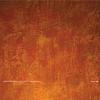 This collection of compositions shows how much Laporte is in love with the subtleties of sound and atmosphere. Shifts in timbre and slight changes in texture are the order of the day, the end result being five wonderful pieces that each explores the physical nature of sound. He avoids needlessly complicated ideas and instead lets the sounds that would normally go unnoticed come to the fore.
This collection of compositions shows how much Laporte is in love with the subtleties of sound and atmosphere. Shifts in timbre and slight changes in texture are the order of the day, the end result being five wonderful pieces that each explores the physical nature of sound. He avoids needlessly complicated ideas and instead lets the sounds that would normally go unnoticed come to the fore.
23five
Like Chris Watson and BJ Nilson's recent album Storm, "Électro-Prana" captures not only the sound of a storm but also, short of actually getting wet, the feeling of being caught out in it. It is hard not to shiver and look for cover when listening to Laporte's recordings of ice storms made from many recordings of the wind whistling through doors and windows. It is great fun to listen to it in bed, wrapping the covers tight even though the real weather outside far warmer. Laporte reproduces the atmosphere of the storm perfectly, it is possible to hear each whistle and whine distinctly.
By far the most interesting of the five compositions is "Dans le Ventre du Dragon." Here Laporte records music being played in an empty cargo ship. A massive natural reverb warps the instruments, the brass wind instruments sound like they are buzzing past like giant insects. It is a very simple concept but Laporte makes sure it sounds extraordinary with his clean recording and postproduction. It is easy to imagine a huge, rusting juggernaut with a few musicians skulking around the bottom, every sound they make swallowed up by the emptiness and the void around them.
A lot of electroacoustic composers get sidetracked by theory and utilising software that is interesting from a music technology point of view but not so interesting to listen to. Laporte steps away from all that malarkey and concentrates on capturing fascinating sounds. Each of the five pieces that make up Soundmatters are feasts for the ear; Laporte combines the right amount of intellectualism with buckets of beautiful noise. He does not seem afraid to move outside any comfort zone he might have; none of the compositions sound like each other as Laporte utilises different techniques to recording sound and vastly different sources of sound (from the traditionally musical to the mechanical to the natural).
Soundmatters is a rich listening experience and a joy to listen to. The attention to detail in terms of sonic nuances is amazing. All of the pieces are utterly engaging: there are so many intricacies and fine alterations in tone that it is impossible to take it all in. However when armed with a comfortable chair and a nice set of headphones, the challenge of taking it all in is a task well worth pursuing.
samples:
Read More
- Administrator
- Albums and Singles
work of one 19-year-old kid, Zach Condon, and done almost completely in his bedroom. Now, two years later, Condon has just completed six months of work on his follow up record, which evokes the forgotten
charms of older approaches to pop music.
The new record (yet to be titled) will be released on October 9th on Ba Da Bing!, and features a notable shift in sound from Gulag. With song titles like "Nantes" and "Cherbourg," the record is more a love
letter to French culture. Featuring thirteen tracks in all, this new album continues on the trajectory that began with the Lon Gisland EP, where the entire eight member band plays along on the recordings.
Besides the eight member orkestar and guests, Owen Pallett of Final Fantasy adds lush string arrangements to the songs, as well as guest vocals on a track entitled "Cliquot."
The album was recorded in two separate sessions - at the A Hawk and a Hacksaw practice space, and at Arcade Fire's ornate studios outside of Montreal. To date, Gulag Orkestar has sold over 100,000 copies
worldwide.
Beirut will be playing a limited number of North American shows this fall in theatrical venues. Colleen, whose new album Les Ondes Silencieuse is out this month on The Leaf Label, will open.
Tour dates:
September 23rd - Princeton, NJ - Terrace F Club
September 24th – New York, NY - Worldess Music Series @ Society for Ethical Culture
September 26th - New York, NY - Delacorte Theater
September 30th – Montreal, QU – La Salla Rosa
October 2nd - Toronto, ONT - Danforth Music Hall
October 4th – Chicago, IL Portage Theater
October 8th – San Francisco, CA - Herbst Theater
October 9th – San Francisco, CA - Herbst Theater
October 10th – Los Angeles, CA - Avalon
Tracklisting:
0. A Call To Arms
1. Nantes
2. A Sunday Smile
3. Guyamas Sonora
4. La Banlieu
5. Cliquot
6. The Penalty
7. Forks and Knives (La Fête)
8. In The Mausoleum
9. Un Dernier Verre (Pour la Route)
10. Cherbourg
11. St. Apollonia
12. The Flying Club Cup
Read More
- Administrator
- Albums and Singles
Release date: October 2007
Hera Ma Nono is the exhilarating sophomore effort from Kenyan and American cooperative Extra Golden. Kenyan benga music and American rock first met with a friendly handshake on the group’s 2006 debut, Ok-Oyot System, and are now fully integrated in a union that represents the vanguard of both styles and transcends the very notion of authenticity.
The group’s future was uncertain after the unfortunate loss of singer/guitarist/co-founder Otieno Jagwasi in 2005. However, an invitation to perform at the 2006 Chicago World Music Festival presented an intriguing opportunity for a US concert debut and a chance to return to the studio. The group called on Opiyo Bilongo to fill the void, a singer/guitarist who has been a dangerous presence on the Kenyan Benga scene for over a decade. Guitarist Ian Eagleson had helped Bilongo record two albums with his group Bilongo Golden Stars back in 2004, sessions that are highlighted on Bilongo’s debut U.S. release, What Do People Want? on Kanyo Records. Onyango Wuod Omari, whose singular drumming punctuated Ok-Oyot System, would also make the trip. For several months and through almost interminable hassles, Eagleson and guitarist Alex Minoff worked feverishly with Onyango Jagwasi (brother of the late Otieno) to make Extra Golden’s concert debut a reality. After countless international phone calls, a great deal of hustling, and some help from people in high places (the office of Illinois Senator Barack Obama helped the group clear their final visa hurdles), Opiyo Bilongo and Onyango Wuod Omari got their visas just a few hours before their scheduled departure. This would be the first journey outside of East Africa for both benga stars. Six weeks of memorable performances followed at both rock venues and private Kenyan functions, then Extra Golden retreated to an isolated location on Lake Wallenpaupack in the Pocono Mountains of Pennsylvania. As with Ok-Oyot System, the band recorded using their “Nyathi Otenga Flying Studio,” but the session for Hera Ma Nono couldn’t have been more different. Instead of three hours in an open-air Nairobi nightclub, the group had five days in a private house. They had access to a variety of guitar amplifiers and effects, and perhaps the biggest difference was the drumkit. The set that Onyango used on Ok-Oyot System was, to be kind, broken. In Pennsylvania, he had a fully-functional kit with a large assortment of tom-toms. These new amenities helped to take the band’s sound in a new direction. With the loss of Otieno Jagwasi, new voices have also contributed to Extra Golden’s new sound. Bilongo, revered in Kenya for his singing and composing, penned and sang lead on “Obama”, “I Miss You” and “Love Hijackers.” Onyango Wuod Omari, while still a sought-after session drummer in Nairobi, has moved into the role of lead vocalist, and can be heard on “Night Runners” and “Hera Ma Nono.” And while he didn’t make the trip this time, Onyango Jagwasi penned the lyrics and sang lead on album-opener “Jakolando,” a tribute to his brother that takes its title from a nickname shared by both. Hera Ma Nono also features some special guests. Austin-based Dennis Rathnaw played percussion on several tracks, and David Egan, a renowned songwriter from Lafayette, Lousiana, played the piano. Hera Ma Nono is Luo for “love in vain”, a theme that reverberates throughout the album. While on “I Miss You”, “Love Hijackers” and the title track, it refers to the love that exists between two people, this same theme applies in less traditional ways in other songs. “Jakolando” and “Brothers Gone Away” illustrate the cruelty of prematurely losing family members and friends. “Street Parade” praises the citizens and culture of New Orleans, who despite a passionate allegiance to their home are punished by its harsh ecology. In a more upbeat lyrical turn, “Obama” thanks the Senator and others who helped Extra Golden reunite to make this recording. Such songs of praise are benga custom, and in keeping with that custom, Obama’s wife and mother receive thanks too. Finally, “Night Runners” contemplates the jajuok, the creepy, nocturnal creatures of Luo folklore. Through it all, Hera Ma Nono shows that, while the defining element of Extra Golden may be its cross-cultural cooperation, styles like Rock and Benga are not quite as disparate as some may believe. Both arose from people cranking up electric guitars and singing melodic songs over propulsive rhythms in an attempt to entertain an audience. Though they may have to cross seas and petition governments just to play a few shows, the members of Extra Golden go about their work with a few simple goals in mind: to write songs that tell stories of life, love and loss; to praise people and places that are dear to their hearts; and, most of all, to create a sound that people of different backgrounds and generations can enjoy.
Read More
- Duncan Edwards
- Albums and Singles
Baars hails from the Netherlands, where soccer (Association Football) remains defined by the great 1974 and 1978 Dutch national soccer teams, often referred to as the best to never win the World Cup. Their philosophy of Total Football, remains a blueprint for high-level individual technique in all positions allowing for greater tactical flexibility and creative expression throughout the team. Soccer Committee's confidence in her technique, attention to detail, and sleek economy is clear; she uses one note where others would place ten. A single pluck is often left to resound into the air, simultaneously demanding attention, and creating space for her words to stand out.
In Chinese legend, it is thought that if a carp can leap a particular waterfall it will become a dragon. However, opening track "Carps" seems more a consideration of the double-meaning of the word, as in "carping." The fish are notorious bottom-feeders, considered pests, muddying water and disturbing vegetation; like people who indulge in constant petty quibbling. Other than that there seems no reason why: "When carps swim, it's time to leave." Either way, far too few songs mention fish, so it's good to have another. "Here I Go Again" contains a few more notes and thus seem a few iotas faster than much of sC, as does "Flock" where her voice fades to a frustratingly inaudible whisper. The playful "Carriage" might have been lifted from Just Another Diamond Day. Agonizing slowness returns on "True," which is brief and excellent. She does not rule the world, but Soccer Committee's adherence to her philosophy is admirable.
Read More
- Administrator
- Albums and Singles
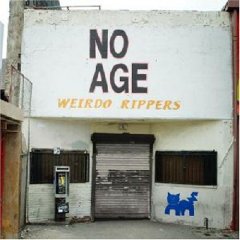 One day earlier this year, No Age released five separate pieces of vinyl on five different labels. Thankfully, Weirdo Rippers collects some of the blissful and spiky highlights on one of my favorite records of 2007.
One day earlier this year, No Age released five separate pieces of vinyl on five different labels. Thankfully, Weirdo Rippers collects some of the blissful and spiky highlights on one of my favorite records of 2007.
No Age are singing drummer Dean Spunt and guitarist Randy Randall. If they are just another band from LA then I am a bakewell tart. They have made an album to cherish. Starting with a couple of minutes of sirenic guitar-buzz and crashing waves, "Every Artist Needs A Tragedy" erupts into a cartoonish thrash and wail joyfully reminscent of Big In Japan's "Suicide A Go Go." This is obviously a track to start a gig and the jolt from hypnotic goosebump to full-on release makes me want to see this band and soon. "Boy Void" follows with a more metallic, clanging, rush of spunky power.
A slightly resigned feeling of nostalgia for 1977 crept over me, but No Age are not retreading a retro path. The looped feedback, stomping, and harmonic moans of "I Wanna Sleep" has a hypnotic quality oddly redolent of Matching Mole, but gravitating to an agitated crescendo that the 1973 radicals could only have attained by discovering amphetamines and/or skateboarding mid-song. "My Life's Alright Without You" seems to jumps back and forth between two songs like a distorted two-minute version of The Fiery Furnaces' entire Blueberry Boat album. Economy be praised.
In days gone by "Everybody's Down" might have been on thousands of jukeboxes. It is a simple burst of throbbing excitement, as lean as a cigarette. "Sunspots" follows, as sweet and trippy as the title suggests; lush waves seem propelled by an aching bass, if only it were five times as long. At this point, Weirdo Rippers goes beyond the contrast of alternating between styles and merges them. I hesitate to suggest that No Age have invented a new sub-genre; but if they haven't, they still might. The sublime "Loosen This Job" triumphs in blending garage aggression, stuttering static, and lush distortion, to create a sound that exceeds the sum of those parts. Sound can be a religious experience and here is an opportunity to worship, even as the line "Why are there so many records in my life" raises a smile. "Neck Escaper" starts with a looping sparkling guitar, punctuated by ticking, thudding drums, before crashing through the gears with a layer of charged fuzz and brilliant off-kilter vocals. Two minutes of listening I'll never regret.
From a crawling pace, eventually "Dead Plane" takes The Ramones to a more distorted, trancelike, and dumber place than ever before. On "Semi-Sorted" the duo use looped feedback, crunching guitars, cavernous thumps and cascading drumrolls to create an ecstatic garage/gamelan storm from the center of which Spunt calmly chants several lines, including "hope is just a word that you avoid". "Escarpement" reprises the sea that opened the album, but the waves and bleeps of sound suggest a craft going underwater on a new journey.
There is nothing in the DIY aesthetic which stipulates that energy must overwhelm all else. No Age take care to ensure that composition and melody are not sacrified. The balance between rawness and sophistication is just about perfect. The album art shows a building called The Smell, an all-ages grassroots space supporting underground art and music. Spunt and Randall have played and curated other shows there. Weirdo Rippers reminds me less of actual cigarette smoke, storage units, leaning against walls, ruining a favorite shirt, squinting to see through a bug-splattered windscreen, exhaustion, happiness, or what Don van Vliet has called "breaking up the catatonic state"; than more of paintings and photographs of those images. Again, the balance between the creation and destruction of hypnosis is adept. No Age are going to be offered a better studio, get new clothes, interviews, gushing reviews of their next record from critics who missed this one, offers of collaboration and all the rest. I hope this is not their only few minutes of mystery and raw brilliance.
samples:
Read More
- Administrator
- Albums and Singles
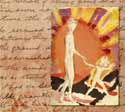 Durtro Jnana issues a remastered, repackaged edition of this hard-to-find album by Current 93, widely acknowledged as one of their finest. Released after the breakthrough apocalyptic folk masterpiece Thunder Perfect Mind, but before the maximalist phantasmagoria of The Inmost Light trilogy, Of Ruine strikes a perfect balance between melody and pscyhedelic experimentation, between lyrical clarity and impenetrable esoterica.
Durtro Jnana issues a remastered, repackaged edition of this hard-to-find album by Current 93, widely acknowledged as one of their finest. Released after the breakthrough apocalyptic folk masterpiece Thunder Perfect Mind, but before the maximalist phantasmagoria of The Inmost Light trilogy, Of Ruine strikes a perfect balance between melody and pscyhedelic experimentation, between lyrical clarity and impenetrable esoterica.
According to David Keenan, author of England's Hidden Reverse, this album is Current 93's best, and listening to it again all these years later, it's hard to disagree. Partly explaining the album's success is its efficient length and linear, narrative trajectory. The liner notes instruct the listener that the album "is to be regarded as one piece," with the track separations representing chapters or sections. Compared to the sprawling double-album that preceded it, Of Ruine is refreshing in its slimness, each track bleeding into the next in a very organic way. Although each track has its own unique melody and atmosphere, the compositional palette across the album remains consistent and minimal: Cashmore's fingerpicked guitar and bass, filled out with Stapleton's psychedelic drones. Only the occasional sprikling of bells or a brief percussive introduction interrupts the album's striking simplicity. Tibet's vocals are occasional joined by Phoebe Cheshire, who opens the album by reading a peculiar quote from British cat artist Louis Wain, a surreal and poetic description of a kitten playing with a ball.
For this album, Tibet and Cashmore drew heavily upon medieval music, directly adapting or drawing inspiration from a suite of liturgical, consort and funeral pieces by composers such as Anthony Holborne, William Lawes and Calum Ruadh. This gives the album a courtliness and melodic coherence that stands out in Current 93's considerable oevre. The production on the album is also first-rate, highlighting each resonant pluck of the guitars, with a canny use of echo and reverb that punctuates the text.
The text itself is one of David Tibet's best, combining the familiar use of mystical Christian metaphors with personal autobiography, which is expanded to encompass England's history, specifically the death of absolute monarchy. For all of its historical and poetic aspirations however, Tibet does not run aground and become the victim of his own complexity and intelligence. To the contrary, the lyrics of this album are probably second only to All the Pretty Little Horses in terms of clarity and relatability. The loose narrative arc relates a tale of existential wandering, a fall into the abyss of melancholy and guilt, and finally a reclamation of innocence and a chance for salvation. This is perhaps a well-worn narrative in the annals of Christian confession, from St. Augustine all the way to Tammy Faye Baker, but this familiarity accounts for its universal nature.
This is probably the last great Current 93 album that desperately needed a reissue: for years the World Serpent edition of the LP and CD have been quite scarce, trading hands for inflated prices of eBay and GEMM. This affordable digipack CD edition on Durtro Jnana is allegedly remastered, although aside from a bit of a volume increase, I could not detect much of a change from the old CD and LP editions in my collection. One big change is the album art, and unfortunately, this is a change very much for the worse. Although the cover is a bit more attractive, the lyrics and liner notes are a real hack job. Some typographical errors were corrected, but I almost couldn't tell, because the booklet is all but unreadable. Instead of the white-on-royal-blue layout of the old booklet, the background has been replaced by what looks to be handwritten text on tea-stained parchment, over which the lyrics are printed in white font. This renders the lyrics extraordinarily difficult to decipher, and for music that is so driven by the strength of text, this is a tragic mistake.
Still, it is wonderful to have this album finally back in print. Even with the artwork, newer fans of Current 93 have ample reason to rejoice. This album not only fills in the missing link between its better-known bookends, but it is also a striking masterpiece of subtlety and restrained beauty.
samples:
- II. Steven and I in the Field of Stars
- IV. "Moonlight," You Will Say
- X. The Great Bloody, Bruised and Silent Veil of the World
Read More
- Administrator
- Albums and Singles
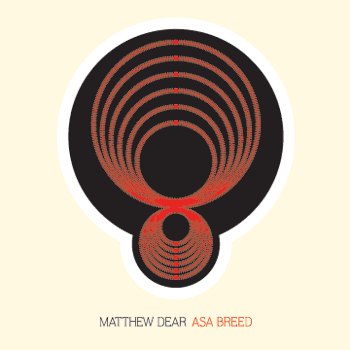 With 2003's Leave Luck To Heaven album and Backstroke, its subsequent companion EP, Matthew Dear unveiled unexpected pop nuggets discovered amidst the gurgling, glitchy rhythms. Including his own effected vocals offered a welcoming doorway for curious novices to enter and pretentious purists, if they so chose, to leave. His best release yet, Asa Breed rewards those who opted to stay.
With 2003's Leave Luck To Heaven album and Backstroke, its subsequent companion EP, Matthew Dear unveiled unexpected pop nuggets discovered amidst the gurgling, glitchy rhythms. Including his own effected vocals offered a welcoming doorway for curious novices to enter and pretentious purists, if they so chose, to leave. His best release yet, Asa Breed rewards those who opted to stay.
Rejecting the somewhat malleable rules of techno while simultaneously embracing its aesthetics, Dear makes a successful and, yes, natural shift from producer to songwriter with these 13 quirky compositions. Though arguably the most appropriate term for Asa Breed, synthpop too often implies plasticity: an inherent lack of substance or musical credibility. Countless new wave artists are derided by those who, given the opportunity, would have gleefully adored them during their heyday, much in the same way that traditional musicians are wont to defensively dismiss electronic musicians. While Dear could hardly be charged with emulating The Human League or Heaven 17, many of these songs owe a great deal to their moment in pop music history.
Yet, Dear rises above the teeming glut of accessible electronica noodlers by espousing eclecticism and a respect for what catches the ear. "Midnight Lovers" features impassioned singing over acoustic guitar strums and a plodding bare bones beat, while, conversely, opener "Fleece On Brain" blossoms with interweaving classic and progressive melodies and an unnaturally deep, near spoken vocal familiar to fans of the aforementioned releases. Those who have caught Dear's delightful DJ sets over the years will enjoy peppy danceable cuts like "Neighborhoods" and the Prince-like electrofunk of "Shy". "Death To Feelers" takes a simple plonked Artificial Intelligence period bell loop, lays it over some broken percussion, and creates something equally exotic and familiar.
Previously released on 10" vinyl, "Deserter" exudes coruscating clarity, the applied and amplified fusion of post-punk single and post-IDM anthem. While not quite as brooding as today's indie darlings, Dear's passive yet catchy delivery seems sincere seeping through the dissonant atmospheres, reverberating bleeps, and Stephen Morris-inspired drums. Without question, Asa Breed showcases an exceptional artist at a remarkable point in his career. Whether it is the springboard for greater success or the brink of catastrophe remains unknown.
samples:
Read More
- Administrator
- Albums and Singles
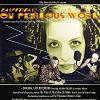 While it is not quite a return to form for Rasputina, Oh Perilous World is a step back in the right direction. I know that the overly goth trappings of the group might not be everyone's cup of tea but I have always had a soft spot for Melora Creager's group. This sixth album sees Rasputina move further from the dark chamber music of their earlier releases. The songs are linked by a rough concept which makes the album feel, for better and for worse, like an eccentric Broadway musical.
While it is not quite a return to form for Rasputina, Oh Perilous World is a step back in the right direction. I know that the overly goth trappings of the group might not be everyone's cup of tea but I have always had a soft spot for Melora Creager's group. This sixth album sees Rasputina move further from the dark chamber music of their earlier releases. The songs are linked by a rough concept which makes the album feel, for better and for worse, like an eccentric Broadway musical.
Creager's songs are all based on the world's recent troubled history but transposing the events back to 1816, tying them in with a story of a Floridian queen who goes to war in a blimp. It is not the world’s greatest plot but it at least leads to some nice songs. "1816, The Year without a Summer" is a grand introduction to the album and some clunky lyrics aside, heralds a return to form for Rasputina. The album's strength and at times, also its weakness, is Creager's acting via singing. For most of the album it works well. "Child Soldier Rebellion" takes on the stories of Africa's child militia and adds in bizarre imagery of airships. Instead of cheapening the harrowing images of child soldiers, it reinforces the horror of the situation. Unfortunately Creager sometimes has too hard tried to work the concept into a song and it all goes a little Andrew Lloyd Webber such as on (the thankfully short) "Old Yellowcake Breaking News."
Although the cello is still the primary instrument employed by the group, Rasputina are moving further and further away from the Victorian chamber group that they started as. Mixing more styles and influences with each album has led to mixed results. Each of their most recent albums (and Oh Perilous World is no exception) has been patchy: cracks appearing especially where there is a more straightforward rock approach to the sound. One particular peeve I have with the music here is Jonathan TeBeest's metronomic drumming. While he provides a robust rhythmical base, he lacks expression. Luckily cellos are naturally very expressive and they counteract his somewhat clinical drumming.
Overall, Oh Perilous World is not the best album released by Rasputina but it is not terrible by any means. I accept there are only so many spooky goth albums you can do before imploding but I wonder how much steam there is left in Rasputina at this point in their career. Granted, a lot of the songs included here are fairly strong compared to those on their last album, Frustration Plantation, but the cracks that have appeared in the last few years have not been filled. The group flounders too often on these last couple of albums to make me have faith in them for much longer.
samples:
Read More
- Administrator
- Albums and Singles
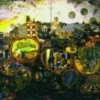 Multi-instrumentalist Mattias Gustavsson of Dungen enlists a few kindred spirits to help him create a joyous album celebrating the wonders of nature. Despite my initial wariness of its sunny outlook, this album turned out to be surprisingly well-rounded. It has stylistic changes, beautiful arrangements, and excellent singing in equal measure and yet still manages to take enough chances to keep it unpredictable.
Multi-instrumentalist Mattias Gustavsson of Dungen enlists a few kindred spirits to help him create a joyous album celebrating the wonders of nature. Despite my initial wariness of its sunny outlook, this album turned out to be surprisingly well-rounded. It has stylistic changes, beautiful arrangements, and excellent singing in equal measure and yet still manages to take enough chances to keep it unpredictable.
Although they share an occasional stylistic signpost with Dungen, Life On Earth! is its own creature. The group's most Dungen-sounding track is the opener, which surprised me considering it's called "Life on Earth." I was taken aback by the opening flute solo, but as it builds in intensity and the anticipation grows, the rush of instruments that follows in its wake is that much more of a balm. The next song, "Sell Your Soul to Me," convinced me to do just that. Amazing harmonies, a relaxing tempo, and Eastern drones oscillating in the background combined for blissful effect, further aided by the brief but fiery freak-out that erupts in the middle.
Another big difference from Dungen is that Gustavsson sings in English. He has great control over his voice and is able to sing convincingly over a loud band or lead an acoustic song with equal captivation. Additionally, the treatment of vocals on this album respects and utilizes the voice as an instrument in a way that a lot of rock music doesn't anymore. A good example of this is "City on the Sea," with its tender main vocal overtaken by an increasing number of voices weaving through the mix like spirits.
Sometimes the focus can shift within a song quite drastically. "Life Turns Fast" begins as a blistering rocker that's eventually smothered by wordless singing. From here, the song collapses into a percussive maelstrom, which is then further deconstructed by effects. Even the mellow songs aren't lacking for complexity. While the harmonies at the beginning and end of "You Are There" may reveal the band's unabashed admiration for the Beatles' "Sun King," the starkly epic excursion in its middle indicates a celestial body altogether alien. And on the otherwise light and fragile "Barefoot on Tiptoe," quiet microtonal violins add subtle abrasion to lend the track a textural integrity found lacking in some of the dopier examples of optimistic music in recent history.
The instruments and arrangements are constantly evolving all over this album, yet they're blended with such a master touch that the shifts feel natural rather than jarring, even when the group interjects noisy electronic instruments. The production detail makes these gorgeous songs something special. The album is a fun ride the whole way through: a harmless but satisfying way to derange the senses.
samples:
Read More

